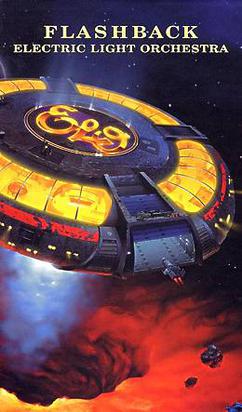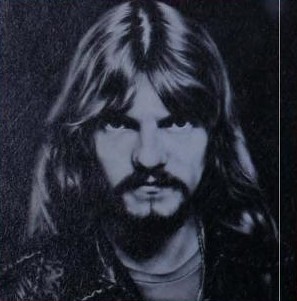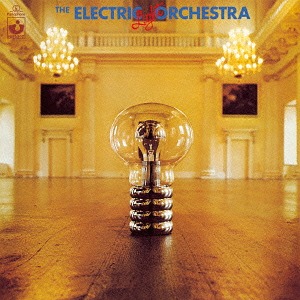Related Research Articles

The Electric Light Orchestra (ELO) are an English rock band formed in Birmingham in 1970 by songwriters and multi-instrumentalists Jeff Lynne and Roy Wood with drummer Bev Bevan. Their music is characterised by a fusion of pop and classical arrangements with futuristic iconography. After Wood's departure in 1972, Lynne became the band's sole leader, arranging and producing every album while writing nearly all of their original material. During their first run from 1970 to 1986, Lynne and Bevan were the group's only consistent members.

On the Third Day is the third studio album by Electric Light Orchestra (ELO), and the first to be recorded without input from Roy Wood. It was released in the United States in November 1973 by United Artists Records, and in the United Kingdom on 14 December 1973 by Warner Bros. Records. From this album on, the word The was dropped from the band's name. The album was reissued on 12 September 2006.

ELO 2 is the second studio album by the Electric Light Orchestra (ELO), released in 1973. In the US, the album was released as Electric Light Orchestra II. It was the band's last album to be released by the Harvest label, the last on which the band used the definite article The in their name, and the one that introduced their abbreviated name 'ELO'.
Zoom is the twelfth studio album by British symphonic rock band Electric Light Orchestra (ELO), released on 12 June 2001 on Epic Records. It was the first official ELO album since 1986's Balance of Power.
Wilfred Gibson was an English violinist, session musician, and early member of the Electric Light Orchestra.

ELO's Greatest Hits is a compilation by the Electric Light Orchestra (ELO), released 23 November 1979. Despite being released after the album Discovery, this album omitted the band's most recent hits, "Don't Bring Me Down" and "Shine a Little Love".

Flashback is the second box set compilation by Electric Light Orchestra (ELO), released in November 2000 in the US and the following month in the UK.

All Over the World: The Very Best of Electric Light Orchestra is a compilation album by the Electric Light Orchestra, released in 2005.

Strange Magic: The Best of Electric Light Orchestra is a compilation album by Electric Light Orchestra (ELO), released in 1995 only in the US.

Michael Kaminski is an English musician. He played violin in the rock band Electric Light Orchestra (ELO) between 1973 and 1980 and toured with the band from 1981 to 1986. He was a member of Electric Light Orchestra Part II from 1991 until its end in 2000, and then The Orchestra from 2000.

Hugh Alexander McDowell was an English cellist and member of the Electric Light Orchestra (ELO) and related acts.

The Light Shines On is a compilation album by Electric Light Orchestra (ELO). This is the second Harvest compilation of their early years with the label, followed in 1979 by volume 2. It features 5 tracks from ELO's debut album, 3 tracks from their second album and the non album single Showdown, although both 10538 Overture and Roll Over Beethoven are the single edits. The full length versions are featured on volume 2.

The Light Shines On Vol 2 is a compilation album by Electric Light Orchestra (ELO). Released in 1979 by Harvest Records as a follow-up to 1977's The Light Shines On, it is a compilation of their early years with the label.

Michael Edwards, later known as Swami Deva Pramada or simply Pramada, was an English cellist and music teacher. He was a member of the Electric Light Orchestra in its early years.

The Electric Light Orchestra (ELO) Part II was a British-American rock band formed by Electric Light Orchestra drummer and co-founder Bev Bevan. The band also included former ELO bassist and vocalist Kelly Groucutt, and violinist Mik Kaminski for most of its career, along with conductor Louis Clark, who toured as a guest with ELO in its later years; ELO cellist Hugh McDowell likewise briefly performed with the group in 1991. Alongside these ELO personnel, Part II rotated through several ELO-unaffiliated frontmen during its lifetime, with singer-songwriter and keyboardist Eric Troyer the only one to retain constant membership.

Eldorado is the fourth studio album by the Electric Light Orchestra (ELO). It was released in the United States in September 1974 by United Artists Records and in the United Kingdom in October 1974 by Warner Bros. Records.

The Electric Light Orchestra is the debut studio album by English rock band Electric Light Orchestra (ELO), released in December 1971 in the United Kingdom by Harvest Records. In the United States, the album was released in March 1972 as No Answer, after a misunderstood telephone message made by a United Artists Records executive asking about the album name; the caller, having failed to reach the ELO contact, wrote down "no answer" in his notes, and this was misconstrued to be the name of the album.

"Boy Blue" is a song written by Jeff Lynne and performed by the Electric Light Orchestra (ELO) which first appeared as track number 3 from their 1974 album Eldorado.
Light Years, The Very Best of Electric Light Orchestra is a two CD compilation album by Electric Light Orchestra (ELO), released in 1997.
References
Sources
- Haines, Marc, Patrik Guttenbacher, and Alexander von Petersdorff. 2000. "Colin Walker, Cello". facethemusic.de, Fanclub of the Electric Light Orchestra and all related artists.
- Larkin, Colin, ed. (2006). "Electric Light Orchestra". Encyclopedia of Popular Music (4th ed.). Oxford University Press. doi:10.1093/acref/9780195313734.001.0001. ISBN 9780195313734.(subscription required)